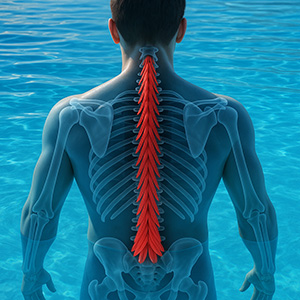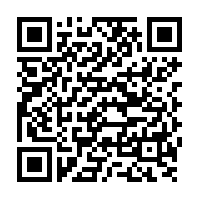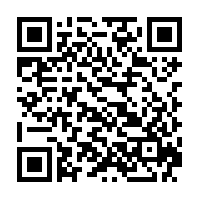Water Jacks are an underwater exercise adapted from their land counterpart. They are an effective way to improve your overall fitness level, flexibility, and strength and have the added benefit of water’s hydrostatic pressure, 360 degrees of resistance, and turbulence.
If you're looking to maximize your Water Jacks routine, there are a few key things to keep in mind.
Jacks require no to little equipment depending on your mobility and your fitness goals. They strongly depend on tempo and resistance.
If done slowly with no equipment there will be little to no effort required and the main benefit you will get is balance and coordination. This is great if you are elderly and need to improve those things.
Increasing your tempo without equipment may give a person of average ability the desired cardiovascular benefits. If you’re more fit and find that your heart rate isn’t at a desired rate of exertion add webbed gloves, paddles, handbells, floatation dumbbells, or noodles.
If you’re very athletic you’ll want to increase your speed to around 132 beats per minute. Additionally, you might wear resistance ankle cuffs to increase the drag on your legs because at this speed the force generated by your jacks is at its maximum power. Remember, increased surface area along with increased speed equals increased force. In land terms, you would think of this as increased weight.
No matter what degree of mobility you have, there are ways to modify your Water Jacks to get the most out of them. All the variations we outline below can be done by anyone at any level of fitness if modified by tempo and depth of water.
If your mobility is limited, you will need to do your jacks slower and in shallower water. Anything from standing in a fully anchored depth, i.e. about waist high, to partially anchored, i.e. chest deep.
With added mobility and strength you will want to do your jacks in partially or fully suspended, i.e. neck deep or off the pool floor, and faster. Wear a flotation belt so you don’t need to fight to stay afloat.
Here's how to do a basic Water Jack:
- Start with your feet together, hands down by your hips.
- With a slight hop move your legs out to your sides while raising your arms up to the surface of the water.
- Focus on engaging your core and keeping your back straight, while maintaining powerful posture.
- Return to feet together with a slight hop and deliberate force pulling in on the legs and down on the arms.
- Repeat.
Variations of Water Jacks:
One-legged Jacks. This exercise is often necessary if you have very limited mobility and cannot do a hop. When you are standing in water fully anchored, you will be able to feel the pool floor under you. This allows you to use your balance on one foot as a stable support. When you do a one-legged jack you can feel your core muscles using an isometric contraction to keep you upright. Simply extend one leg and both arms out with as much force as you can muster, and return with same force. Follow this with the other leg and alternate for as long as you wish to do this exercise.
Opposite arm Jacks. As the name implies, you have to concentrate to drop your arms when your legs go out and raise your arms as your legs come in. This is the best way to do jacks fully suspended in a floatation belt. You will have less bobbing up and down when your arms oppose your legs.
Diamond Jacks. Similar to regular jacks, your arms and legs are coordinated except the hop travels forward, center and back. This pattern moves both legs forward when your arms are back, you jump wide center, then both legs jump back when your arms are forward. It is a great brain and coordination builder.
Tuck Jacks. Incorporating a core crunch into the center of your jack takes full advantage of water’s buoyant nature. You hop out wide coordinating arms and legs, then jump up into a tuck using your abdominal muscles. Return to a wide jack from the tuck and you’re ready to do it again.
Frog Jacks. Similar to a tuck jack except your legs are turned out from the hip as you jump up, knees bending with your feet rotated inward, pull feet together in a frog shape. Return to a wide jack keeping the heels inward and toes pointing outward.
M&M Jacks. Like a regular jack, your arms and legs are moving out and in together. M&M shapes are created standing with your legs together, tuck up center, jump out into a jack, tuck using core, and return to standing center.
All of these jacks variations are applicable to any level of mobility with modifications. For a full explanation of modifications download the Ability Fix app or go to the YouTube channel, http://YouTube.com/AbilityFix
As with all exercise there are some safety concerns that need to be addressed. I am a big supporter of “if it hurts - don’t do it”. Of course, "if it feels good do more of that" applies as well.
Ask your doctor or physical therapist to give you more guidance if you have had surgeries.
If you are doing this aerobically make sure the water temperature is cool enough. I recommend 88 degrees (F) or less.
Keep your powerful posture. Poor posture strains the wrong muscles and will make this exercise less effective.
Wearing shoes protects your feet, supports your arches and cushions your heels.
Floatation belt usage allows you to focus on the exercise and not struggle to staying afloat.
In conclusion, Water Jacks a great way to do a low-impact exercise that doesn't put strain on your spine because there is no twisting or bending.
By following these tips, you can maximize your Water Jacks exercise and get more out of your water workouts. They are an effective way to improve your overall fitness level, flexibility, and strength, as well as strengthen your core muscles, improve balance, and increase cardiovascular capacity and endurance. Give it a try and see the difference it can make in your fitness routine.
If your are looking for more variation in your Aqua Jacks you may want to consider using the Ability Fix app. This app includes a variety of pool jacks, as well as helpful instructional videos. All exercises and workouts are categorized by a person’s mobility level. With the help of the Ability Fix app you can take your water exercise to the next level.
You can download the app from below link.
https://www.abilityfix.com/en/app/downloads


















 1. **Warm-up**: Begin by warming up your body. You can do this by walking in the pool, changing directions, backwards, lsideways, using longer and longer strides. Be sure you are using your whole foot with each step. Walk and slowly swing your arms back and forth, in and out, front and back, explore big moves that just feel right. Be aware of your breath flowing comfortably, in & out slowly through your nose; ribcage to belly expanding as you inhale; core engaging you exhale. Breath cycles done like this will flow continuously, connected to your mental focus and connected to your body’s movement. Do this for about five minutes or until you feel warmed up.
1. **Warm-up**: Begin by warming up your body. You can do this by walking in the pool, changing directions, backwards, lsideways, using longer and longer strides. Be sure you are using your whole foot with each step. Walk and slowly swing your arms back and forth, in and out, front and back, explore big moves that just feel right. Be aware of your breath flowing comfortably, in & out slowly through your nose; ribcage to belly expanding as you inhale; core engaging you exhale. Breath cycles done like this will flow continuously, connected to your mental focus and connected to your body’s movement. Do this for about five minutes or until you feel warmed up. 2. **Mountain Pose (Tadasana)**: Stand straight, feet hip-width apart and neutral in their alignment with your knees. Let your arms relax by your sides, they might be floating on the surface of the water. Soften your knees, feel your weight equal on both legs. Focusing your eyes on something stable in front of you may help your balance. Feel your feet on the floor, create a tripod balance at your heel, ball of the foot above your big toe, and the ball of the foot above your little toe. To increase your stability lift your toes, root your tripod feet—lifting the arches— wiggle them, then set your toes down wide on the pool floor. Maintain this pose for about 3 to 5 breath cycles. Mountain Pose is your home base, you may return to this pose at any point in a yoga workout.
2. **Mountain Pose (Tadasana)**: Stand straight, feet hip-width apart and neutral in their alignment with your knees. Let your arms relax by your sides, they might be floating on the surface of the water. Soften your knees, feel your weight equal on both legs. Focusing your eyes on something stable in front of you may help your balance. Feel your feet on the floor, create a tripod balance at your heel, ball of the foot above your big toe, and the ball of the foot above your little toe. To increase your stability lift your toes, root your tripod feet—lifting the arches— wiggle them, then set your toes down wide on the pool floor. Maintain this pose for about 3 to 5 breath cycles. Mountain Pose is your home base, you may return to this pose at any point in a yoga workout. 3. **Tree Pose (Vrikshasana)**: Starting from Mountain Pose, put your weight to your right foot. Bend your left knee, pivot at your hip to turn it outward, and place the sole of your left foot anywhere on the inside of your right leg except pressing on the knee. You can use the pool wall for balance if needed. Feel your right foot’s tripod balance on the pool floor. Arms can reach overhead to build up your balance challenge. Hold for 3-5 breath cycles, then switch sides by returning to Mountain Pose, weight on your left foot, pivot your right knee outward, etc. Ideally you have the same balance, strength, and range of motion on the other side.
3. **Tree Pose (Vrikshasana)**: Starting from Mountain Pose, put your weight to your right foot. Bend your left knee, pivot at your hip to turn it outward, and place the sole of your left foot anywhere on the inside of your right leg except pressing on the knee. You can use the pool wall for balance if needed. Feel your right foot’s tripod balance on the pool floor. Arms can reach overhead to build up your balance challenge. Hold for 3-5 breath cycles, then switch sides by returning to Mountain Pose, weight on your left foot, pivot your right knee outward, etc. Ideally you have the same balance, strength, and range of motion on the other side. . **Chair Pose (Utkatasana)**: In a standing position, imagine sitting back into a chair. Find a depth that allows you to have both feet on the floor. Keep your knees over your ankles, and float your arms out wide in a T position. To increase challenge raise your arms overhead, draw your shoulder blades into your ribcage, away from your ears. The water will help support you in this pose. Hold for 3-5 breath cycles.
. **Chair Pose (Utkatasana)**: In a standing position, imagine sitting back into a chair. Find a depth that allows you to have both feet on the floor. Keep your knees over your ankles, and float your arms out wide in a T position. To increase challenge raise your arms overhead, draw your shoulder blades into your ribcage, away from your ears. The water will help support you in this pose. Hold for 3-5 breath cycles. 6. **Corpse Pose (Shavasana)**: Finally, your “cool down” is a balance of relaxation and meditation. By simply floating on your back, taking in the sensation of the water against your skin, and breathing deeply. If you are not comfortable floating, like me, you can use the pool wall or the pool stairs and be relaxed onto them. (Use small noodles under your body if you like but they are not needed.) Do this for about five to ten minutes or until you feel ready to stand up, flex your toes & fingers, and stretch your body.
6. **Corpse Pose (Shavasana)**: Finally, your “cool down” is a balance of relaxation and meditation. By simply floating on your back, taking in the sensation of the water against your skin, and breathing deeply. If you are not comfortable floating, like me, you can use the pool wall or the pool stairs and be relaxed onto them. (Use small noodles under your body if you like but they are not needed.) Do this for about five to ten minutes or until you feel ready to stand up, flex your toes & fingers, and stretch your body.



 Pool running is a simple yet effective form of exercise that requires minimal equipment. All you will need is a swimming pool and some basic pool exercise gear like a swimsuit or form-fitting workout garments. You might also need a pool noodle or a belt, and perhaps a pair of arch-supporting water shoes, depending on the depth of pool running you wish to do. Adding some handheld pool exercise equipment can really amp up your cardio workout.
Pool running is a simple yet effective form of exercise that requires minimal equipment. All you will need is a swimming pool and some basic pool exercise gear like a swimsuit or form-fitting workout garments. You might also need a pool noodle or a belt, and perhaps a pair of arch-supporting water shoes, depending on the depth of pool running you wish to do. Adding some handheld pool exercise equipment can really amp up your cardio workout.













